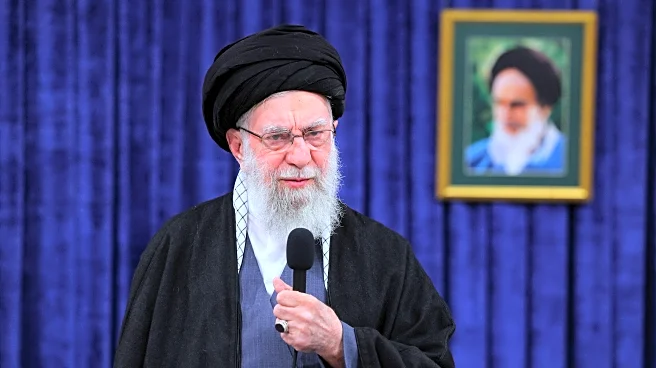Rapid Read • 9 min read
Taiwanese voters are participating in a significant referendum to decide on two major issues: the potential recall of seven opposition lawmakers and the revival of nuclear power. This vote comes three months after the shutdown of the last operating nuclear reactor on the island. The Democratic Progressive Party (DPP), which lost its legislative majority in the 2024 elections, is seeking to regain control through these recall votes. However, the prospects appear challenging as a previous attempt to recall 24 opposition members was unsuccessful. The Nationalist Party, also known as the Kuomintang (KMT), currently holds a slight edge in the legislature with 52 seats, one more than the DPP. The KMT has allied with the Taiwan People's Party to pass legislation, including a proposal for this referendum on nuclear power. The referendum specifically addresses whether the recently shut Maanshan nuclear plant should resume operations, contingent on safety approvals from regulators.
AD
The outcome of this referendum could have significant implications for Taiwan's energy policy and political landscape. A decision to revive nuclear power could alter Taiwan's energy strategy, which has been moving away from nuclear energy. Proponents argue that nuclear power could lower electricity costs and support the increasing energy demands driven by advancements in artificial intelligence. The political stakes are also high, as the DPP seeks to regain legislative influence. The results could impact the balance of power between the DPP and the opposition, affecting future legislative decisions and governance. Additionally, the involvement of influential figures like Jensen Huang, founder of Nvidia, underscores the intersection of technology and energy policy, highlighting the broader economic and industrial implications.
If the referendum results favor the continuation of nuclear power, Taiwan may see a shift in its energy policies, potentially leading to the reopening of the Maanshan plant. This could prompt further debates on energy sustainability and safety. Politically, the DPP's success or failure in the recall votes will influence its strategy and alliances in the legislature. The outcome may also affect Taiwan's international relations, particularly with countries invested in its energy and technological sectors. Stakeholders, including political leaders and industry players, will likely respond based on the referendum's results, shaping Taiwan's future policy directions.
The referendum highlights deeper issues regarding Taiwan's energy independence and environmental commitments. The decision to potentially revive nuclear power raises questions about balancing energy needs with environmental and safety concerns. It also reflects the ongoing political dynamics in Taiwan, where legislative control is crucial for implementing policy changes. The involvement of tech industry leaders like Jensen Huang suggests a growing recognition of the role of energy policy in supporting technological advancements, particularly in AI. This intersection of technology and energy policy could influence future legislative and economic strategies in Taiwan.
AD
More Stories You Might Enjoy












